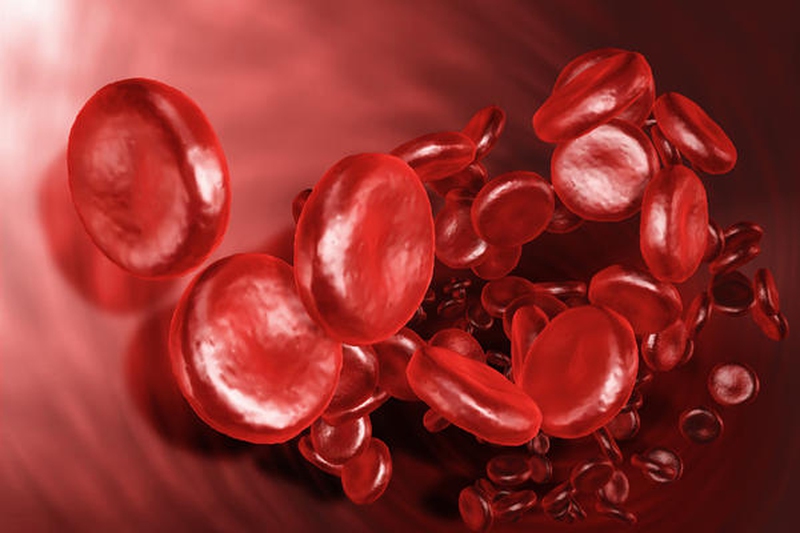A small variation in consistency and color of blood throughout menstrual period is perfectly normal. However, sometimes, changes in thickness and color of blood or clotting can be an indicator of a problem. You may find it embarrassing to ask your physician about problems with menstrual bleeding, but it is very important.

Is It Normal to Have Heavy Bleeding with Clots?
During a menstrual cycle, the lining of the uterus thickens as it gets ready for the implantation of the fertilized ovum. If you do not get pregnant, then, during periods, the uterine lining is shed in the form of blood.
Many females pass clots with their menstrual blood occasionally. The color of the clots can range from bright red to dark. These clots are quite often shed on those days when the bleeding is the heaviest. Due to the presence of multiple clots the menstrual blood may appear thicker or denser than usual.
If excessive clots are passed or the clots passed are bigger than the size of a quarter, then you should consult a physician so as to rule out medical problems that are causing an abnormal period.
There are many causes of heaving bleeding with clots. Quite often, it can be simply due to a hormonal imbalance or change. During a normal menstrual cycle, the buildup of the uterine lining (endometrium) is regulated by the balance between the estrogen and progesterone hormones. If there is hormonal imbalance, excessive development of uterine lining can take place, which is eventually shed by way of heavy bleeding.
Common Causes of Heavy Bleeding with Clots
Ovarian dysfunction: In cases when an egg is not released by your ovaries during a menstrual cycle, the hormone progesterone is not produced by the body. This results in hormonal imbalance causing heavy bleeding and clots.
Uterine fibroids: Uterine fibroids can lead to prolonged or heavier than normal menstrual bleeding. Uterine fibroids usually develop during the child bearing years.
Polyps: Polyps are benign, small growths on the uterine lining (uterine polyps) that can lead to prolonged or heavy bleeding during menstruation. Uterine polyps usually occur in females during reproductive years due to high levels of hormones.
Adenomyosis: In this condition, endometrial glands embed in the uterine muscle. This often results in painful menses and heavy bleeding. This condition most likely occurs in middle aged females who had children.
Intrauterine device (IUD): Heavy bleeding with clots is a usual side-effect of using an IUD for birth control. When an IUD is the cause of heavy bleeding, you may have to get it removed.
Complications of pregnancy: A single, late, heavy period may result from a miscarriage. However, miscarriage is usually not the cause, if menstrual bleeding occurs at the usual time of normal periods. An ectopic pregnancy, which is characterized by implantation of a fertilized ovum inside the fallopian tube instead of implantation in the uterus, may also cause heavy bleeding.
Cancer: In rare cases, ovarian cancer, uterine cancer and cervical cancer can result in heavy menstrual bleeding.
Inherited disorders of bleeding: Certain blood coagulation disorders, for example-von Willebrand’s disease (VWD), a condition characterized by deficiency or impairment of an important blood-clotting factor or platelet function disorder can also result in heavy menstrual bleeding.
Medications: Some medicines such as anticoagulants (for example aspirin) and anti-inflammatory medicines can cause prolonged or heavy menstrual bleeding.
Other medical conditions: Various other medical conditions such as thyroid problems, pelvic inflammatory disease (PID), kidney or liver disease, cancer and endometriosis may result in heavy menstrual bleeding.
Physicians are not able to find the exact cause of the problem in almost half of the females suffering from heavy bleeding with clots. If no problem has been found by your gynecologist on your routine visit, then, it is important that you should get tested for a bleeding disorder.
What to Do?
You should visit your gynecologist if you have excessive menstrual bleeding or the duration of your bleeding is longer than a week or it impacts your everyday life greatly or just feels different than the normal. Some other signs that show that you should visit your doctor immediately include bleeding in between periods, bleeding after sex, bleeding after menopause or bleeding during pregnancy.
Tests and Treatment for Heavy Bleeding with Clots
The cause of heavy bleeding can usually be determined by your physician by doing a few tests. Blood may be drawn to look for clotting or blood disorders. An endometrial biopsy may be done (sample of tissue may be taken from the uterine lining) to check for presence of abnormal cells, an indicator of uterine cancer.
Other tests that may be done include X-ray or ultrasound images of the uterus or use of devices to view the inside of the uterus (a process known as hysteroscopy) or abdomen (a process known as laparoscopy).
Treatment depends on the cause of the heavy bleeding with clots and the needs of the individual patient. It may include hormones such as IUDs and birth control pills, non steroidal anti inflammatory drugs such as naproxen and ibuprofen, the non-hormonal medicine tranexamic acid and possible surgery.
Due to heavy blood loss, females with heavy bleeding are prone to develop anemia as well and may require treatment for that also.
You should discuss with their physicians all their treatment options before making any decisions regarding how to treat or manage heavy menstrual bleeding.
Surgical procedures such as removal of the uterus (hysterectomy) or procedures which are less invasive such as endometrial ablation should be considered carefully. Due to hysterectomy a female will not be able to bear children in the future and due to endometrial ablation future pregnancy will be risky and unlikely.
View All Comments /Add Comment